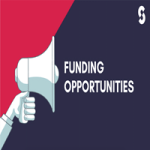
Deadline Date: April 16, 2025
Donor Name: African Wildlife Foundation
Grant Size: Not Available
Category: Fellowship
Reference URL:https://www.awf.org/about/careers/call-proposals-design-and-conduct-training-course-self-leadership-leading-others
Copy Url
The African Wildlife Foundation has launched the AWF-Wall Leadership and Management Fellowship, a nine-month training program with a focus on self-leadership, leading teams and organizational leadership.
Through this program, young professionals gain not only the skills to lead but also a deep understanding of Africa’s unique conservation challenges and opportunities. The AWF-Wall Youth Leadership Program equips them with both technical expertise and leadership skills, preparing them to step into key leadership roles and drive African-led conservation efforts across the continent.
The AWF-Wall Leadership & Management Fellowship is part of the broader AWF-Wall Youth Leadership Program funded by the Wall Family Foundation, which also includes its sister track, the AWF-Wall Policy Fellowship. Together, these two tracks aim to:
- Develop a new generation of African professionals equipped with the leadership skills necessary to drive and influence systemic change in the environmental sector.
- Ensure these professionals are deeply grounded in Africa’s unique environmental context and realities, promoting homegrown solutions to conservation challenges.
Objectives
- Develop Strong Personal Leadership Skills: Build self-awareness, confidence, and decision-making abilities.
- Learn to Lead and Manage Teams: Gain practical skills in team leadership, stakeholder collaboration, and communication.
- Solve Conservation Challenges: Use problem-solving frameworks to address conservation challenges effectively.
- Understand Organizational Leadership in Conservation: Learn strategic planning, project management, and decision-making in conservation organizations.
- Improve Public Engagement & Advocacy: Master communication strategies to influence policy, engage media, and inspire action.
Modules
- The training is anchored on four modules:
- Module 1: Foundation on Conservation
- The Foundation Module sets the stage for a fellow’s conservation leadership and management learning journey. The module invites fellows to reflect on the state of Africa’s biodiversity, challenges, opportunities and the urgent need for collective voice and action.
- Module 2: Self Leadership & Leading Others
- This module focuses on strengthening self-awareness and adaptability skills while building skills on effective ways of engaging and motivating teams for conservation impact. Fellows learn strategies to lead self and inspire purpose-driven teams. The sessions are complemented by practical assignments.
- Module 3: Organisational Leadership
- Focuses on building the important leadership and management skill of bringing about systemic solutions. Fellows are introduced to change management and problem solving frameworks for solving complex conservation challenges. They work closely with coaches to develop, prototype and present the outcomes of their innovation project to a panel of experts.
- Module 4: Communication
- This module empowers fellows to tell their story with confidence, whether through a powerful pitch, an engaging social media presence, or a captivating public speech. They learn tools to effectively share their impact and build a strong professional profile, skills that are key for a conservation leader aspiring to inspire and influence. By the end, they will be ready to use refined communication skills to inspire, influence, and connect with diverse audiences.
- Module 1: Foundation on Conservation
Benefits
- Duration: 9-month learning journey from April to December.
- Monthly virtual training sessions: Interactive synchronous learning on conservation leadership, self and team management, and organizational leadership.
- Innovation Project: Fellows identify a challenge or tap into an opportunity within their functional area and apply the problem-solving framework taught in Module 3 to develop and test a prototype during the fellowship. The project culminates in a presentation to a conservation and innovation experts panel.
- Group and individual coaching support: Fellows are supported to practice the leadership skills in their everyday work as well as in developing their innovation projects.
- Placements: To complement the learning through curated sessions, fellows are given an opportunity to learn by observing leaders other than their current managers. For one month, fellows are supported to either join a different department in their current organisations or join another organization in the country of domicile in order to experience different leadership styles and understand the nuances of what change looks like in different contexts.
- Networking: Throughout the program, fellows are given opportunities to network with each other through peer learning activities and with experts and leaders in conservation via leadership dialogues.
Eligibility Criteria
- This Request for Proposal (RFP) is open to consultants based in the East African region. Consultants outside Kenya must ensure that their proposed budget accounts for all logistical costs, including travel, accommodation, and other relevant expenses.
- The fellowship is designed for young African professionals who are already working in conservation and are seeking to:
- Create meaningful change in conservation but need the tools, mentorship, and network to make it happen.
- Strengthen leadership skills, build high-performing teams, and navigate complex conservation challenges.
- Position themselves for senior roles in conservation by enhancing management and strategic problem-solving skills.
- The fellowship attracts a diverse pool of professionals in the conservation sector from ecologists, conservation biologists, government officials, agronomists, policy leads, activists, communication practitioners and experts, community leaders, health experts, monitoring and evaluation leads, researchers, youth leaders, finance leads, human resources experts etc.
Application Requirements
- Please submit a detailed proposal including but not limited to:
- Cover letter demonstrating understanding of the scope of work
- Proposed curriculum and methodology i.e Outline of training topics, learning outcomes, and delivery format.
- Budget. Transparent cost breakdown (fees, materials, logistical expenses etc)
- References. At least two professional references from similar projects.
- Evidence of prior work. Samples of training materials, past impact reports, or testimonials.